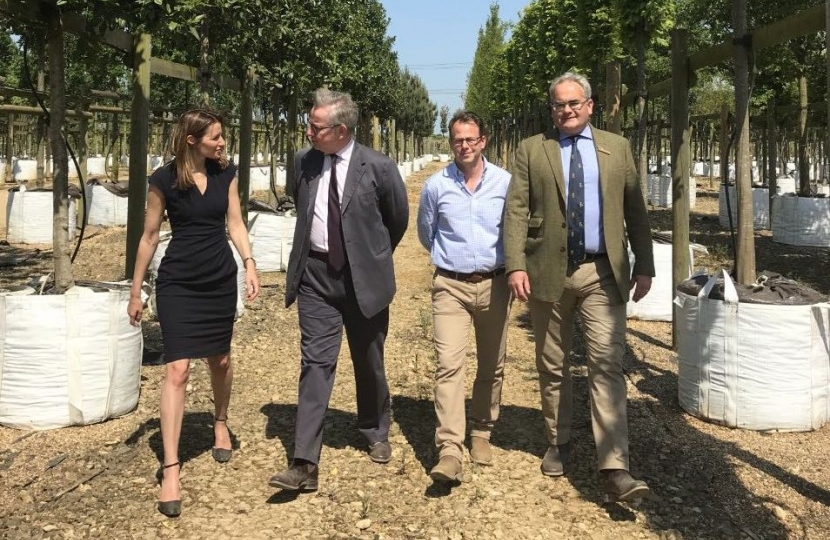
Last month I invited The Secretary of State for Environment, Food, and Rural Affairs, Michael Gove MP, to visit the constituency and to see the pioneering work being done in the agriculture and agri-tech sectors in our region.
Local businesses such as Barcham Trees, G’s Fresh (G’s), the National Institute of Agricultural Botany (NIAB) and Tompsett Burgess Growers to name a few, are all leading the way with their forward thinking and environmentally sustainable approach to delivering their goods and services.
We didn’t have time to visit every worthy business and see every development but what we did see and hear was impressive. This included the development of an arboretum at Barcham Trees, which will create up to 40 new jobs and deliver a unique visitor attraction to the area; a tour of G’s harvest rig operations, which have been the product of extensive in-house development; and a talk on the future aspirations of NIAB’s Innovation Hub, including the incubation of businesses with a waste or productivity focus.
It is not only businesses in our region that are setting the agenda when it comes to environmental considerations. A class of year 5 and 6 children at Rackham Primary School in Witchford have led a plastic waste campaign calling on leading chocolate manufacturers to reduce the amount of plastic they use in the packaging of Easter eggs. As well as writing to the manufacturers, the children also wrote to me about their concerns. I, in turn, was inspired to write on their behalf to Mondelez, Lindt-Spruengli, Mars, and Thorntons to reinforce their case.
It is heartening that as we all become better informed about the damage certain ways of doing things can have on the environment, we are all, more and more, starting to question and change our ways.
Since the introduction of a 5p charge on plastic carrier bags, many of us now habitually carry reusable bags with us which has resulted in an 85% reduction in the use of carrier bags.
Since a House of Commons discussion around a potential ‘latte tax’ caught the attention of the media and made us all aware that disposable coffee cups are often not recyclable, we are starting to see a change of approach from both hot drink providers and consumers alike.
We have much to be proud of that as a region, not only our businesses but our school age children are driving progress in this area. The examples we as parents, teachers, carers and businesses set for our children matter. Long may we continue to lead by example and be able to look on with pride as our children take that lead and run with it.